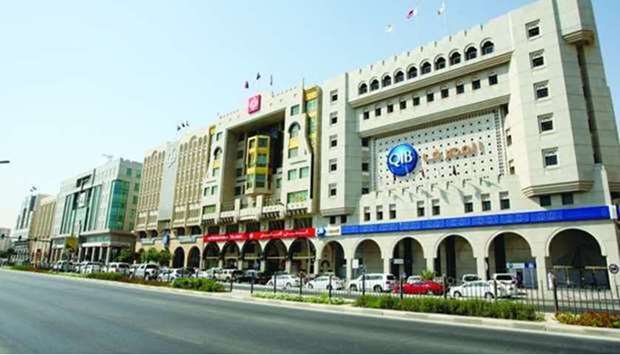More banks in Doha are slated to issue green bonds as the country's banking landscape is now developing, testing and commercialising new ESG or environment social and governance-tied products and models, according to KPMG.
"One of the leading banks has indeed issued green bonds last year and more banks are expected to follow," KPMG said in a report on Qatar's banking perspectives.
QNB had in 2020 issued $600mn in five-year senior unsecured notes to finance green projects, its first green benchmark bond issuance; showing a sign of growing investor demand for these instruments in the Gulf Co-operation Council.
Qatar Central Bank governor HE Sheikh Abdullah bin Saoud al-Thani said some of the Qatari banks have already adopted green initiatives in their business practices as they issue green bonds, provide green loans/mortgages and green credit cards.
"These are small stepping-stones towards developing a more focused and sustainable framework," he said.
In addition, the investment and treasury arms of banks have started considering ESG indices while deciding which products to invest in, the KPMG report said.
With new ESG-related international benchmarks and frameworks expected to be introduced soon, ESG is expected to become an important determining factor for these decisions, it said.
"Banks in Qatar now recognise that their ESG agenda is a tool for growth, confidence and sustainability. They simply cannot ignore something that is now a fundamental part of banking," Kashif Parvez of KPMG Qatar said.
Though future regulatory assistance and reporting requirements are "uncertain", the report said what is clear is that pressure from regulators, investors and the public for greater adoption of ESG would increase in the future.
KPMG said highlighted that regulators recognise that moving towards a low-carbon economy would create additional complexities for financial services firms.
They are worried that banks are not fully prepared for the types of prudential and conduct risks that could arise — both in terms of the direct risks (the physical impact of climate change on assets) and the transition risks (the challenges inherent in a wholesale move towards a low carbon economy).
"Therefore, almost all components of banks’ risk management will need revision to incorporate sustainability risks. This includes all levels of policies, procedures, methodologies, and infrastructure," the report said.
As one of the world’s largest natural gas producers, Qatar has a particularly important role to play in the ‘E’, or environment, part of the ESG equation, the report said, adding the country has indeed implemented several projects and initiatives to contribute to efforts aimed at reducing carbon dioxide emissions and increasing reliance on renewable energy.
Indicating the changing nature of ESG programmes during the pandemic was the ‘S’, or social support provided by the sovereign/Qatar Central Bank in terms of support measures and stimulus packages which have been fully embraced by Qatari banks.
With the introduction of Qatar Financial Market Authority’s code of corporate governance, listed banks in Qatar have repositioned themselves with relevant policies and procedures as a basic step towards ensuring a good corporate governance culture with more to be expected, particularly in terms of bringing diversity to their board and equivalent committees.
"One of the leading banks has indeed issued green bonds last year and more banks are expected to follow," KPMG said in a report on Qatar's banking perspectives.
QNB had in 2020 issued $600mn in five-year senior unsecured notes to finance green projects, its first green benchmark bond issuance; showing a sign of growing investor demand for these instruments in the Gulf Co-operation Council.
Qatar Central Bank governor HE Sheikh Abdullah bin Saoud al-Thani said some of the Qatari banks have already adopted green initiatives in their business practices as they issue green bonds, provide green loans/mortgages and green credit cards.
"These are small stepping-stones towards developing a more focused and sustainable framework," he said.
In addition, the investment and treasury arms of banks have started considering ESG indices while deciding which products to invest in, the KPMG report said.
With new ESG-related international benchmarks and frameworks expected to be introduced soon, ESG is expected to become an important determining factor for these decisions, it said.
"Banks in Qatar now recognise that their ESG agenda is a tool for growth, confidence and sustainability. They simply cannot ignore something that is now a fundamental part of banking," Kashif Parvez of KPMG Qatar said.
Though future regulatory assistance and reporting requirements are "uncertain", the report said what is clear is that pressure from regulators, investors and the public for greater adoption of ESG would increase in the future.
KPMG said highlighted that regulators recognise that moving towards a low-carbon economy would create additional complexities for financial services firms.
They are worried that banks are not fully prepared for the types of prudential and conduct risks that could arise — both in terms of the direct risks (the physical impact of climate change on assets) and the transition risks (the challenges inherent in a wholesale move towards a low carbon economy).
"Therefore, almost all components of banks’ risk management will need revision to incorporate sustainability risks. This includes all levels of policies, procedures, methodologies, and infrastructure," the report said.
As one of the world’s largest natural gas producers, Qatar has a particularly important role to play in the ‘E’, or environment, part of the ESG equation, the report said, adding the country has indeed implemented several projects and initiatives to contribute to efforts aimed at reducing carbon dioxide emissions and increasing reliance on renewable energy.
Indicating the changing nature of ESG programmes during the pandemic was the ‘S’, or social support provided by the sovereign/Qatar Central Bank in terms of support measures and stimulus packages which have been fully embraced by Qatari banks.
With the introduction of Qatar Financial Market Authority’s code of corporate governance, listed banks in Qatar have repositioned themselves with relevant policies and procedures as a basic step towards ensuring a good corporate governance culture with more to be expected, particularly in terms of bringing diversity to their board and equivalent committees.


